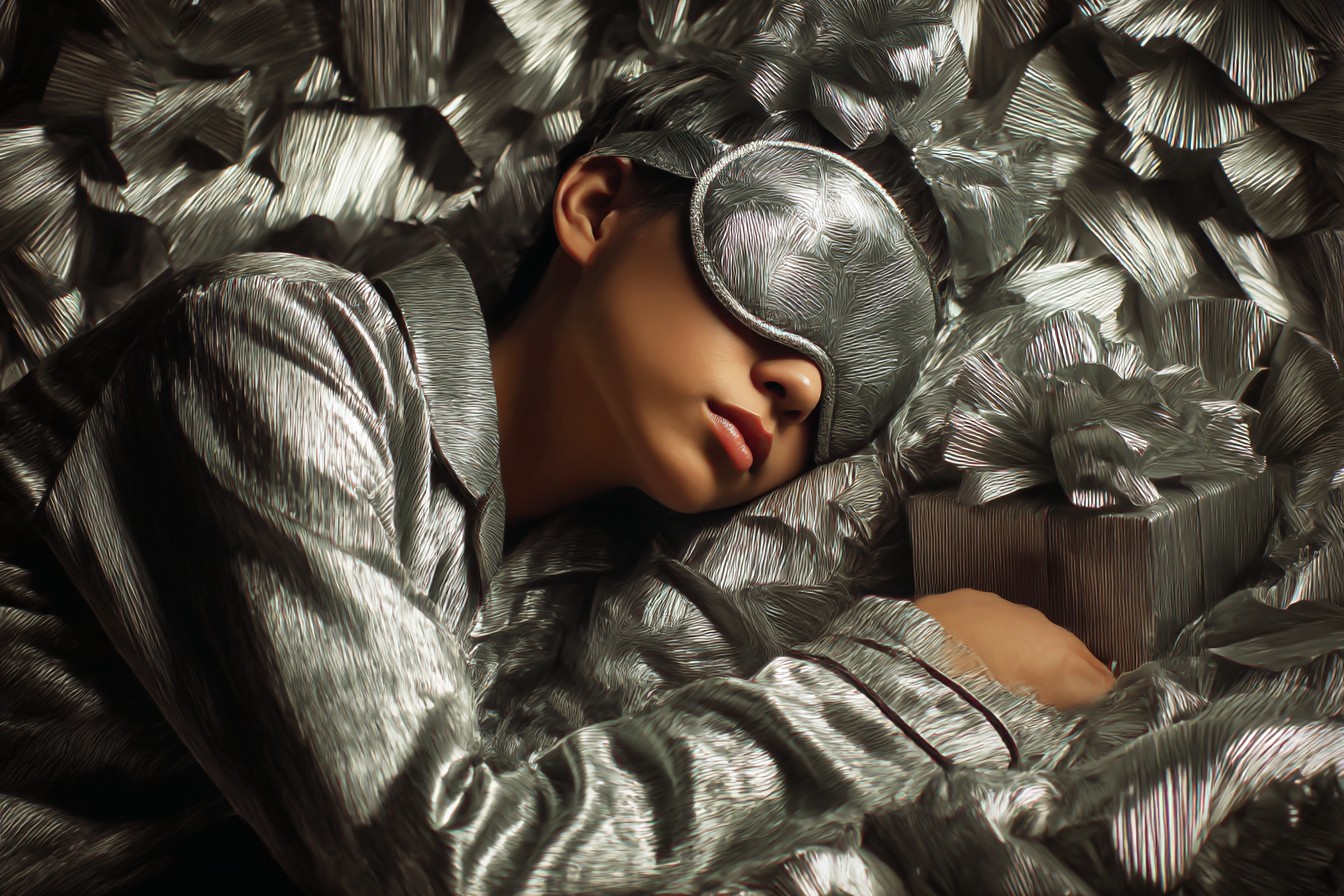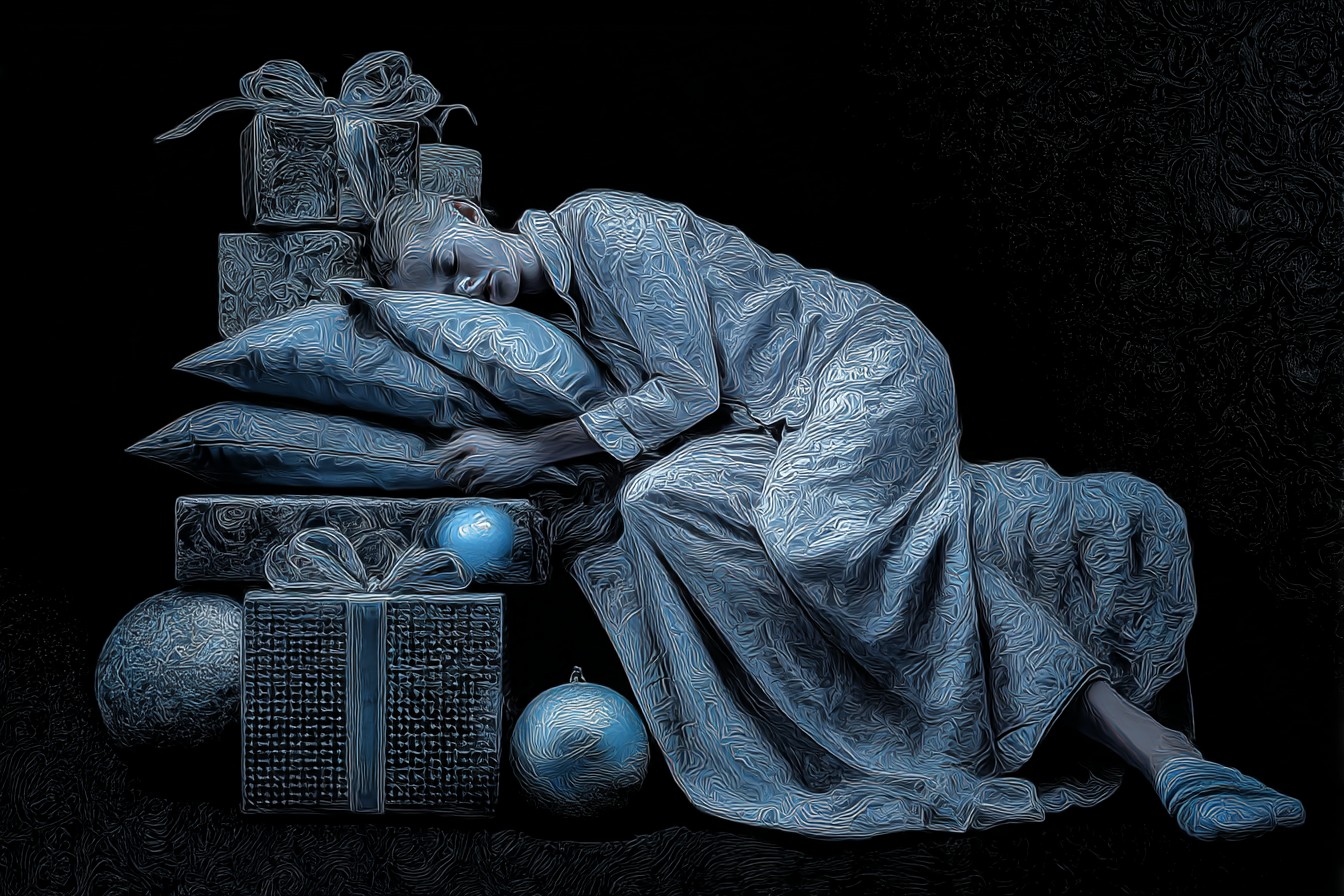It was 3:17 AM when I got the text from my best friend Priya: “Still awake. Third night this week. Send help or coffee. Preferably both.” I stared at my phone in the darkness, Charlie snoring softly beside me, and felt that familiar pang of helplessness. Priya had been struggling with sleep ever since her promotion to senior management. Her brain simply wouldn’t shut off, endlessly cycling through meeting agendas and project deadlines while her body begged for rest.
As someone who treats gift-giving with the seriousness most people reserve for their taxes, I took her plea as a personal challenge. Not just to find her something that might help, but to really understand what makes a genuinely effective sleep gift—something that wouldn’t just end up in the drawer with all those well-intentioned-but-ultimately-useless scented candles and bubble baths people always seem to give insomniacs.
Look, I’ll be the first to admit I’ve got it wrong in the past. When my brother was going through a rough patch after his divorce and mentioned having trouble sleeping, I immediately packed him off a hamper of lavender everything—pillow spray, eye mask, bath salts, the works. I spent a small fortune on it at one of those posh department stores. When I asked him a month later if it was helping, he just gave me this look and said, “Em, I appreciate the thought, but I’m a 42-year-old bloke who works in construction. The lads would never let me hear the end of it if they knew I was spritzing lavender water on my pillow every night.”
Lesson learned. Sleep gifts, perhaps more than any other category, need to be tailored not just to the problem but to the person’s lifestyle, preferences, and—crucially—what they’ll actually use rather than just appreciate the sentiment of.
So I did what any slightly obsessive gift expert would do: I launched a proper investigation. I interviewed friends, family members, and colleagues about their sleep challenges and what had genuinely helped. I scoured sleep research (did you know there are entire scientific journals dedicated just to sleep? Fascinating stuff). I even kept a sleep diary myself for a month, testing various products and methods.
What emerged was surprisingly nuanced. The perfect sleep gift isn’t universal—it depends entirely on what’s keeping someone awake in the first place. Is it physical discomfort? Racing thoughts? Environmental factors? The wrong solution for the wrong problem isn’t just ineffective; it can actually make someone feel more frustrated. Nothing worse than lying awake at 4 AM surrounded by “sleep aids” that are doing absolutely bugger all to help.
For Priya, the issue was clearly an overactive mind. She needed help transitioning from work mode to sleep mode—creating stronger boundaries between the two. After much research (and several late-night phone calls listening to her talk through work problems), I created what I called a “Wind-Down Ritual Box.” It wasn’t just a collection of random relaxing items; it was a carefully sequenced system designed to be used in a specific order.
The box contained a beautiful notebook and pen for a brain dump exercise (getting all those swirling thoughts onto paper), a timer to enforce strict limits on work rumination, a guided meditation focused specifically on letting go of the workday (none of that generic “imagine a beach” rubbish), and—the piece she later told me made the biggest difference—a specially created playlist of instrumental music that gradually slowed in tempo over 30 minutes, subtly reducing her heart rate along with it. I’d spent ages researching the psychology of music and sleep for that bit.
I delivered it with strict instructions: “This isn’t just a box of nice things. It’s a system. Try it exactly as outlined for seven days before making any judgments.”
Two weeks later, she called me on her way to work, sounding more like herself than she had in months. “I don’t know what kind of sleep witchcraft you’ve worked,” she said, “but I’ve had five solid nights this week. Not perfect, but so much better.”
That success sparked something of an obsession. I began creating bespoke sleep gift packages for various friends and family members, each tailored to their specific sleep challenges. My father-in-law, who struggles with back pain keeping him awake, received a completely different approach than my cousin who can’t sleep because her partner snores like a freight train.
Along the way, I’ve discovered some surprising insights about what makes sleep gifts actually work rather than just look pretty in Instagram-worthy packaging. Thought I’d share some of what I’ve learned, in case you’ve got a sleep-deprived person in your life who needs more than just another pair of fluffy socks.
First off, temperature regulation is massively underrated when it comes to sleep quality. One of my most successful gifts ever was for my friend Mark, who kept waking up overheated despite having a fan going all night. After some digging (and perhaps too many questions about his night sweats than was strictly comfortable for either of us), I discovered that his duvet was the culprit—way too heavy for his naturally warm body temperature. I gifted him a bamboo duvet with specific cooling technology and temperature-regulating sheets. Cost me an absolute fortune, but he still mentions it years later as “the gift that changed my life.” Not being dramatic at all, that one.
For my aunt, who couldn’t seem to stay asleep through the night, the game-changer was surprisingly low-tech. After learning she typically woke up thirsty around 3 AM, then couldn’t fall back asleep after getting up for water, I gave her an insulated bedside carafe that keeps water cold overnight without condensation. Paired it with a beautiful glass that inverts over the top to keep dust out. Simple, not particularly expensive, but solved a specific problem in her sleep cycle that more obvious sleep gifts would have missed completely.
The environmental factors are crucial too. My colleague Sarah lives on a busy London street and the noise was driving her mad at night. Instead of the obvious earplugs (which she found uncomfortable), I researched alternatives and landed on a white noise machine specifically calibrated to mask street sounds rather than just create general ambient noise. Paired it with blackout curtains that had a special seal around the edges to keep light pollution out. She said the combination was like suddenly moving to the countryside—complete game-changer for her urban sleep.
The most interesting case was probably my brother-in-law James. Classic type-A personality who claimed he’d “tried everything” for his insomnia. Traditional relaxation techniques just made him more frustrated because his mind would rebel against them. After really listening to how he described his sleep issues, I realized he needed something that engaged his problem-solving brain rather than asking him to shut it off. I found these fascinating puzzle books specifically designed to induce sleep through a phenomenon called “cognitive diversion”—essentially giving his analytical mind something mildly engaging but ultimately mundane to focus on instead of his usual anxieties. He was properly skeptical but tried them out of politeness, and was shocked to find himself nodding off mid-puzzle most nights.
What I’ve come to understand is that truly effective sleep gifts need to address the root cause of someone’s specific sleep issue. Generic “relaxation” presents often miss the mark because they’re not targeted enough. The best approach is actually to have a proper conversation with the person about their sleep—not just “Do you sleep well?” but detailed questions about their bedtime routine, what exactly happens when they try to fall asleep, what wakes them up, how their bedroom is set up, even what they eat and drink in the evenings.
Yes, it’s a bit more effort than just grabbing a lavender pillow spray (sorry, lavender industry), but the results are incomparable. When you get it right—when you give someone the gift of genuinely better sleep—they don’t just appreciate the present, they think of you with gratitude literally every single night as they drift off peacefully.
I’ve also learned to consider time of day in my sleep gift planning. Morning-focused sleep gifts are often overlooked but can be brilliant. One of my most appreciated gifts was a sunrise alarm clock for my friend Nina, who was struggling with seasonal affective disorder that was disrupting her sleep cycle. The gradual light simulation helped reset her circadian rhythm, improving not just her waking experience but her sleep quality too.
For couples with mismatched sleep schedules, relationship-preserving sleep gifts can be relationship-saving. When my friend Katie started working night shifts while her husband remained on a day schedule, their sleep incompatibility was causing serious tension. I put together what I called a “Sleep Harmony Kit”—including a split tog duvet (warmer on her side, cooler on his), a white noise machine with earphones for just one person, a sleep mask with built-in bluetooth headphones, and routing cables for her phone charger that wouldn’t disturb his side of the bed. She told me later it had genuinely helped preserve their sanity during a difficult transition.
Perhaps the most important lesson I’ve learned about sleep gifts is that presentation matters in a unique way. Unlike birthday or Christmas presents, sleep gifts shouldn’t create excitement or stimulation when opened. I now deliberately package sleep gifts in calming colors, with minimal plastic (no frustrating packaging to raise blood pressure), and include a card that sets the right expectations—not “Open me now!” but “For your bedside table, whenever you’re ready to explore.”
I’ve also become careful about timing delivery. Sending a sleep gift to arrive late in the day allows the recipient to incorporate it into their routine that very evening, while morning deliveries often mean the gift gets put aside to be dealt with later, sometimes forgotten in the daily shuffle.
Last Christmas, instead of contributing to the usual family Secret Santa, I offered to create personalized sleep packages for anyone who wanted one. I expected maybe two or three takers—instead, nearly the entire extended family signed up. I spent weeks researching and assembling individualized sleep solutions, from my teenage niece who couldn’t stop scrolling TikTok at bedtime (a phone lockbox with a timed seal, paired with alternative bedtime entertainment that wouldn’t mess with her melatonin) to my 80-year-old grandmother who woke with aching joints (a specially contoured pillow system with memory foam supplements for pressure points).
The feedback was overwhelming. My uncle, never one for emotional displays, actually called me (called, not texted!) to say he’d had his first solid week of sleep in a decade. My cousin incorporated her new bedtime routine so thoroughly that her husband jokingly complained I’d created a monster who now refused to deviate from her “sacred sleep ritual” even on holiday.
Sleep, I’ve realized, is perhaps the most intimate gift category there is. It touches on our vulnerabilities, our daily rituals, our physical comfort, and our mental peace. Getting it right requires genuine empathy and attention to the unique needs of the individual. There are no one-size-fits-all solutions, no matter what the department store gift guides would have you believe.
So the next time someone in your life mentions sleep troubles, resist the urge to immediately reach for the generic relaxation gifts. Ask questions. Listen carefully. Think about their specific challenges and preferences. Consider their bedroom environment, their daily schedule, their sleep obstacles. The perfect sleep gift isn’t just about the object itself—it’s about showing someone you understand their needs deeply enough to help them find rest.
As for Priya, she still uses her Wind-Down Ritual Box three years later, though she’s adapted it to suit her evolving needs. The notebook has been replaced several times, the meditation has changed, but the core practice remains. She tells me it’s the most thoughtful gift she’s ever received—not because of what it was, but because of how thoroughly it answered an unspoken need.
And really, isn’t that what the best gifts always do?





Leave a Reply